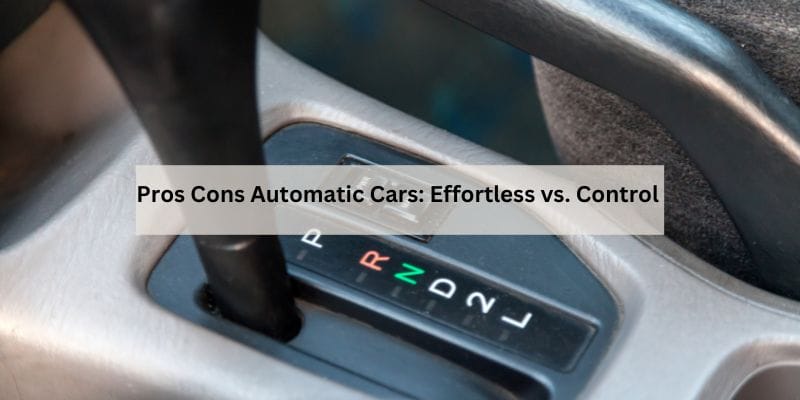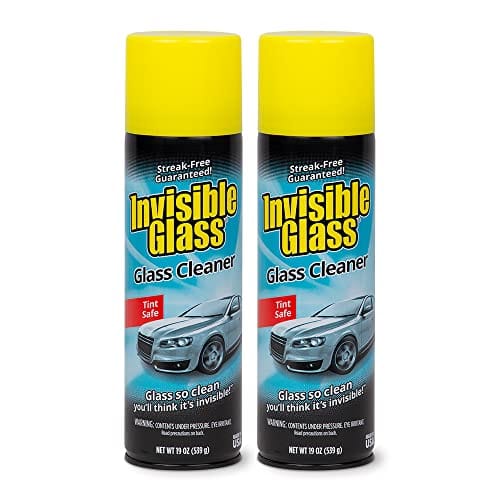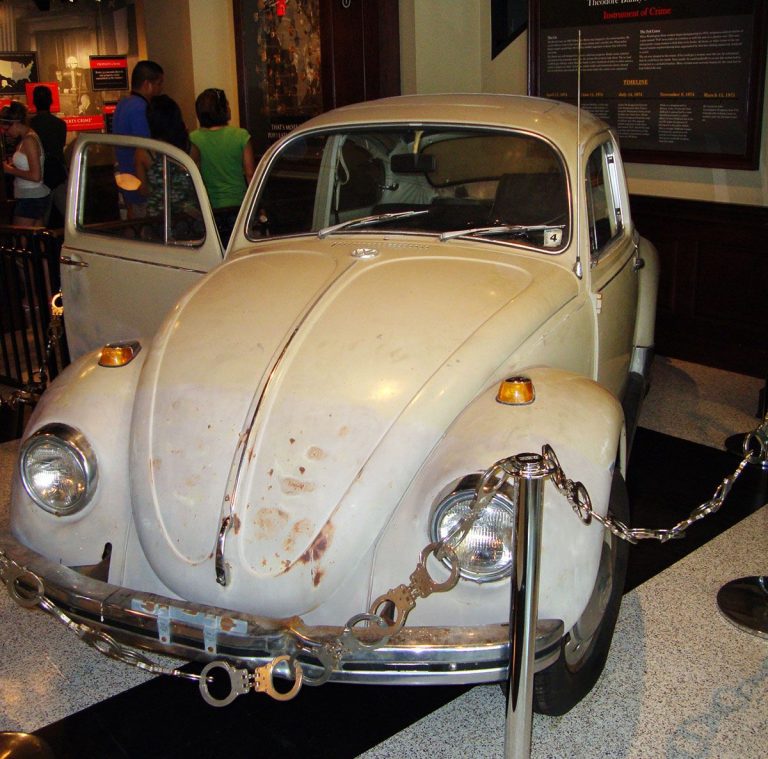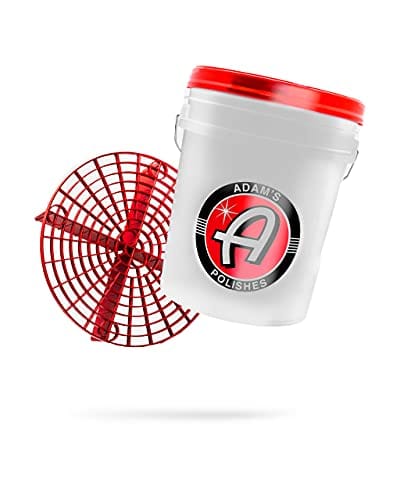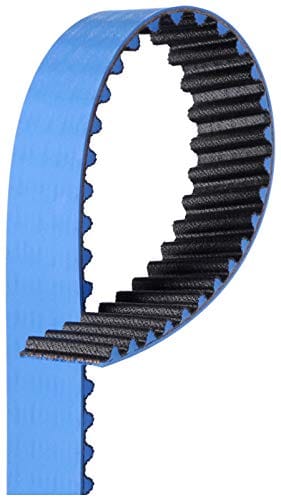Pros Cons Automatic Cars: Effortless vs. Control
Automatic cars have the advantage of being easier to use and more comfortable for the driver. However, they cost more upfront and require more maintenance due to their complex design system.
Additionally, relying on the torque converter to switch gears makes automatic cars less fuel-efficient. On the other hand, manual cars are less expensive and offer a more engaging driving experience, but they require manual shifting and can be challenging in stop-and-go traffic.
It ultimately depends on personal preference and driving needs when deciding between an automatic or manual car.
Introduction To Automatic Cars
Automatic cars have become increasingly popular in recent years, reflecting a shifting market trend. The transition from manual to automatic vehicles is evident, with more drivers opting for the convenience and ease of automatic transmissions. However, it’s important to consider the drawbacks of automatic cars as well. While they offer a smoother driving experience, automatic vehicles tend to be more expensive to purchase and maintain. Additionally, they are less fuel-efficient due to reliance on the torque converter for gear shifting. On the other hand, manual transmissions are generally more cost-effective and provide a more engaging driving experience. Ultimately, the choice between automatic and manual cars depends on individual preferences and driving needs.
Ease Of Use
Automatic cars provide ease of driving for individuals who find it challenging to operate a manual transmission. This is particularly beneficial for individuals with physical limitations or those who face heavy traffic frequently. The absence of a clutch pedal simplifies the operation, making it convenient for city driving. However, learning to operate an automatic car may take some time for individuals accustomed to manual vehicles. New drivers may find it easier to grasp the basic operations, but it’s essential to adapt to the unique driving experience provided by automatic cars.
Safety Features
Automatic cars have advanced safety features that enhance driver attention and reaction times. The inclusion of technologies such as automatic emergency braking and lane-keeping assist improves overall safety. These features help prevent accidents and protect occupants in the event of a collision. Additionally, automatic cars with adaptive cruise control and blind-spot monitoring contribute to safer driving experiences.
Financial Considerations
Automatic cars offer convenience and ease of use, making them comfortable for drivers. However, they tend to cost more upfront and require more maintenance due to their complex design. Additionally, relying on the torque converter to switch gears may make automatic cars less fuel-efficient compared to manual transmissions.
| Financial Considerations | |
|---|---|
| Initial Purchase Price | Automatic cars cost more upfront than manual cars. |
| Long-Term Maintenance Costs | Automatic cars require more maintenance due to their complex design system and reliance on the torque converter to switch gears. This makes them less fuel-efficient and ultimately more expensive to maintain over time. |
When considering the financial aspects of owning an automatic car, it’s important to keep in mind both the initial purchase price and long-term maintenance costs. While automatic cars may provide more driving comfort and convenience, they often come with a higher price tag upfront and require more frequent maintenance. This is due to the complexity of their design system and the reliance on the torque converter to switch gears. Overall, it’s important to weigh the pros and cons of automatic cars before making a decision based on financial considerations.
Performance And Efficiency
Automatic cars have their advantages and disadvantages when it comes to performance and efficiency. In terms of fuel economy, manual cars tend to have better fuel efficiency compared to automatic cars. This is because with an automatic car, you rely on the torque converter to switch gears for you, which can lead to more fuel consumption. On the other hand, automatic cars offer a smoother driving experience and are more convenient to use. They eliminate the need for gear shifting, making them a great choice for stop-and-go traffic. However, automatic cars can be more expensive upfront and require more maintenance due to their complex design system. It ultimately comes down to personal preference and driving needs.
| Torque Converter | Gear Shifting |
|---|---|
| Less fuel-efficient | Better fuel efficiency |
| Smoother driving experience | More engaging for the driver |
| Eliminates the need for gear shifting | Full control over gears and when to shift |
Driver Engagement
Automatic cars offer convenience and ease of use for drivers, especially in stop-and-go traffic. However, they tend to cost more upfront and require additional maintenance due to their complex design. Additionally, reliance on the torque converter for gear shifting can make automatic cars less fuel-efficient compared to manual transmission vehicles.
| Driver Engagement |
|---|
| When it comes to driving pleasure, many car enthusiasts prefer manual transmission cars due to the greater control they offer. With a manual car, the driver can fully engage with the vehicle by shifting gears and feeling the engine’s power. On the other hand, automatic cars can provide a more comfortable driving experience, especially in heavy traffic, as they eliminate the need to constantly shift gears. However, this convenience comes at a cost of reduced control and less involvement in the driving experience. |
| Automatics in Performance Driving |
| For performance driving, manual transmission cars are often preferred due to the greater control they offer. However, modern automatic cars with advanced gearboxes can provide impressive performance as well. Some high-end sports cars, such as the Porsche 911 and Nissan GT-R, come with dual-clutch automatic gearboxes that can shift faster than a human can. However, these advanced automatic gearboxes can be expensive to repair and maintain. |
Reliability And Repairs
Automatic cars have their pros and cons when it comes to reliability and repairs. While they offer convenience and ease of use, they can be more expensive upfront and require more maintenance due to their complex design. Additionally, relying on the torque converter for gear shifting can make them less fuel-efficient.
| Durability of Automatic Transmissions | Costs of Common Repairs |
| Automatic transmissions are generally less durable than manual transmissions due to the complexity of their design. They have more moving parts and rely on the torque converter to shift gears. This can cause wear and tear over time and lead to costly repairs. | Common repairs for automatic transmissions can be more expensive than manual transmissions. This includes repairs to the torque converter, valve body, and clutch packs. Additionally, regular maintenance such as fluid changes and filter replacements are necessary to prevent costly repairs. |
Overall, while automatic cars offer convenience and ease of use, they come with a higher cost of ownership due to their complex design and need for regular maintenance. It’s important to consider the potential costs of repairs and maintenance before making a decision between an automatic or manual transmission.
Resale Value And Demand
When it comes to resale value, automatic cars tend to have a higher demand in the market. This is due to the increasing preference for automatic transmissions among buyers. The convenience and ease of driving an automatic car have led to a surge in market preferences. However, it’s important to consider the depreciation rates for automatics. Automatic cars generally experience higher depreciation compared to manual cars, which can impact their resale value over time.
Frequently Asked Questions
What Is The Disadvantage Of An Automatic Car?
The disadvantage of an automatic car is that they cost more upfront and require more maintenance due to their complex design system. Automatic cars rely on the torque converter to switch gears, making them less fuel-efficient.
What Are The Pros And Cons Of An Automatic Transmission?
Pros of an automatic transmission include easier use, more comfort for the driver, and increased safety. Automatic cars are also more convenient since they don’t require manual shifting. However, automatic transmissions can be more expensive upfront and require more maintenance.
They are also less fuel-efficient compared to manual transmissions.
Is A Manual Car Better Than An Automatic?
Manual cars offer more control and a more engaging driving experience. They are cheaper to repair and generally more reliable. However, automatic cars are easier to maneuver in stop-and-go traffic and offer convenience. Consider your driving needs and preferences when deciding between manual and automatic.
What Are The Advantages Of Automatic Cars?
Automatic cars offer several advantages. First, they provide driving comfort by eliminating the need to manually shift gears. This makes them convenient and easy to operate. Second, automatic transmissions are generally safer to use than manual cars. Lastly, automatic cars require less maintenance compared to manual cars.
Conclusion
Automatic cars have their pros and cons. They offer convenience and ease of use, making them more comfortable for drivers. However, they tend to be more expensive upfront and require more maintenance due to their complex design. Additionally, automatic cars are less fuel-efficient compared to manual cars.
It ultimately comes down to personal preference and the specific needs of the driver.

